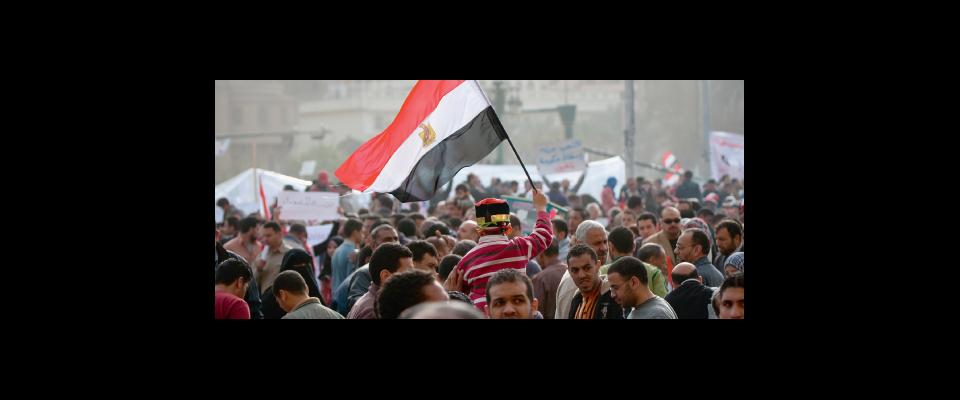Africa has its share of environmental problems, and the Nile River is a prima facie case in point. The longest river in the world, its basin supports about 300 million people. The demands on the Nile and its major tributaries are extreme—for urban water supplies, for agriculture, for hydropower and fisheries—and they are growing. And as the demands grow, the potential for conflict grows with it. Some of the flash points are especially fraught: A dam under construction in Ethiopia on the Blue Nile is the largest hydro project in Africa, and has enraged Egypt.
But if the politicians along the Nile rattle sabers, there is a call for calm and collaboration from an unusual quarter: musicians who live in the basin.
The idea for a pan-Nile cultural program, an initiative emphasizing common interests rather than differences among Nilotic peoples, first emerged during a 2011 conversation in San Francisco between Egyptian ethnomusicologist Mina Girgis and Ethiopian-American singer Meklit Hadero. The Nile supports a diversity of cultures, each with its unique musical traditions. By bringing musicians together from all across the basin, the two artists reasoned, they could create new music, collaborative music—music that could be shared with the world.
And if there could be collaborations on music, perhaps that might point the way to collaborations on resources and politics.
In short order, the Nile Project was born.
Girgis and Hadero eventually were able to draft a rotating group of almost 30 musicians from all around the basin and organize African tours emphasizing Nilotic commonalities rather than political differences. They’ve played in Uganda, Tanzania, Ethiopia, Kenya and Egypt, and have held two “Nile Gatherings,” two-week residencies in African venues where directors Girgis and Miles Jay lead participating musicians through a series of improvisations that are recorded and released as albums. Their debut recording, Aswan, was named one of National Public Radio’s Five “Must Hear” international albums.
“You start seeing through this performance an alternative model of organizing ourselves around our river basin,” Girgis explains. “And so here are musicians from all these different walks of life that came together and found a way to collaborate, and make something that is unique to the Nile Basin that would not be found in any of these countries.” The question now is whether that spirit can be applied to other paradigms: “Can we take this and inspire innovators to come up with solutions to Nile problems?”
More than a dozen Project instrumentalists and vocalists touring the United States in 2015 will play a concert at Zellerbach Hall on the UC Berkeley campus Thursday, Feb. 19, to be followed on Friday, Feb. 20. by a panel discussion on the Nile and African identity, as well as programs on food, community music and more. Participants are from Sudan, Egypt, Eritrea, Ethiopia and Uganda.
“(The Project) is an immensely important initiative,” says Rob Bailis, the associate director for Cal Performances and a classical clarinetist. “The Nile Basin is dealing with very serious resource issues, and there has been a certain sense that conflict is inevitable, that any kind of cooperative, sustainable solution is impossible. These musicians have provided an alternative model. They all honor their specific musical traditions, but they’ve collaborated to create something different, something remarkable. They’ve played before huge crowds wherever they’ve gone in Africa. People have been incredibly responsive to their message.”
Booking the Project was a no-brainer for Cal Performances, Bailis says. “We wanted to help them share their message, but it was more than that. The music—it’s so powerful. When we heard it, we immediately jumped on board. We knew we had to bring them to Cal.”
UC Berkeley is one of the co-sponsors for the Nile Project’s U.S. tour, and the university will support a week-long residency program for the group.
“The Center for African Studies and the Center for Middle Eastern Studies are co-hosting a symposium,” says Bailis, “and we’re working to get every sixth grade class in Berkeley to one of their performances.”



















